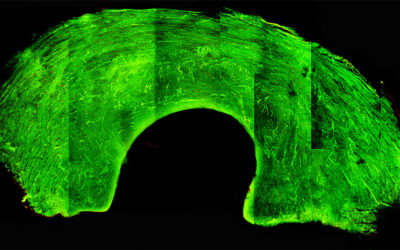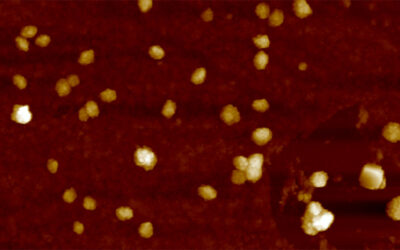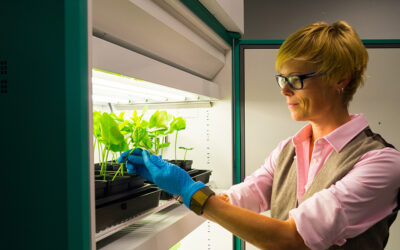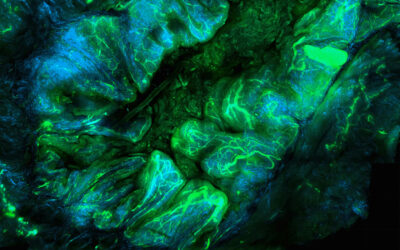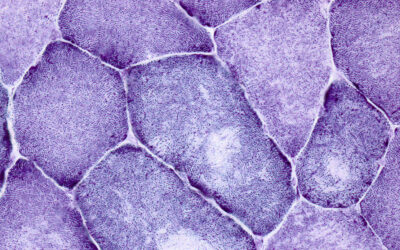Qiaobing Xu, assistant professor of biomedical engineering at Tufts University School of Engineering, has been named a Pew Scholar in Biomedical Sciences by the Pew Charitable Trusts.
The highly competitive program, whose past winners have included Nobel Prize winners, MacArthur Fellows and recipients of the Albert Lasker Basic Medical Research Award, identifies talented researchers in medicine or biomedical sciences. Xu’s work focuses on nanotechnology for biomedical uses. He will receive $240,000 over four years to advance his research.
Xu’s research delves into tissue engineering and nanomedicine. His lab has pioneered the use of nature-derived nanostructured tissue—decellularized tendon— as a source of biomaterials and works to engineer these materials through a combination of tissue sectioning, multilayer stacking and rolling into structures with innovative biomedical functions.
Launched in 1985, the program has awarded over 500 Pew Scholars more than $120 million in funding. To be considered, applicants from all areas of physical and life sciences related to biomedical study must be nominated by an invited institution and demonstrate both excellence and innovation in their research. This year, 179 institutions were requested to nominate a candidate, and 134 eligible nominations were received. Twenty-two researchers were named scholars.
With the Pew award, Xu plans to repurpose tendon fibers in order to create tubular blood vessel grafts. “Grafts composed of this material could find many therapeutic applications, such as patches for rotator cuff repair, nerve regeneration, or as prosthetic blood vessels to treat vascular disease,” says Xu.
“The Pew Scholars program gives innovative scientists both the freedom to take calculated risks and the resources to pursue the most promising, but untried, avenues for scientific breakthroughs,” said Rebecca W. Rimel, president and CEO of Pew. “Pew funding provides an ‘insurance policy, allowing our scientists to be adventurous with their research. Though their scientific fields are diverse, their commitment is uniform: harnessing scientific discovery to improve human health.”
Xu received a doctorate in chemistry in 2007 from Harvard University. He trained as a postdoctoral fellow in chemical engineering at the Massachusetts Institute of Technology. In 2010, Qiaobing joined Tufts as an assistant professor in the department of biomedical engineering.
Source: Tufts University












